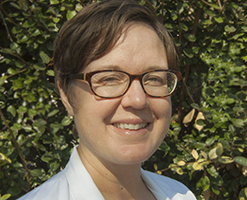 If you’ve ever dealt with pain, anxiety, or sleep issues, by now someone has likely recommended CBD to you! There is a fad-like fashionability to CBD that often clouds the therapeutic instruction, making it hard to know when to really use it. Is CBD being recommended because it is the latest trend, or do you really need it?
If you’ve ever dealt with pain, anxiety, or sleep issues, by now someone has likely recommended CBD to you! There is a fad-like fashionability to CBD that often clouds the therapeutic instruction, making it hard to know when to really use it. Is CBD being recommended because it is the latest trend, or do you really need it?
The best way to answer this question is to know some basics about how CBD works. CBD, or Cannabidiol, is a chemical component of the hemp plant. People often confuse THC with CBD. Tetrahydrocannabinol (THC) is the hallucinogenic component of marijuana while CBD is the non-hallucinogenic, non-addictive essential oil from the hemp plant. There are at least 120 identified cannabinoids from the hemp plant each being explored for therapeutic application. CBD extracts sold over the counter are measured to have less that 0.3% THC. So why not zero? The lower limit of detection of the instrument used to measure THC is never reported as zero, but a value according to calibration, specification, validation of the instrument. This is often how reporting and measuring is done in labs. You cannot really report 0, but only guarantee the lower limit of detection of your instrument.
Cannabinoids have been clinically researched to have positive effects on anxiety, cognition, movement disorders, and pain.(1) Exactly how this happens is still being detailed. But one published study with rats found that CBD treatment normalized serotonin receptor (5-HT) activity. Serotonin is a common neurotransmitter targeted with depression and anxiety. Subsequently, in the same study, researchers found that CBD also modulated the specific pain receptor TRVP1 resulting in an analgesic effect.(2)
A multitude of case studies are continually being published that show supportive evidence for CBD as a treatment for generalized anxiety disorder, panic disorder, social anxiety disorder, post-traumatic stress disorder, and obsessive-compulsive disorder. Most data suggests acute dosing, meaning CBD was used to quickly support the system for immediate relief, but not necessarily addressing long-term symptom relief.(3)
This is certainly something to keep in mind. If you are looking for a cure-all, CBD is not that, but it can help palliate or stabilize pain and anxiety while you work on the root cause with your healthcare provider.
Due to CBD’s effect on liver enzyme interactions, there are a few important drug interactions to know about: CBD cannot be used with blood thinners, amiodarone (a heart rhythm medication), and the seizure medications clobazam, lamotrigine, and valproate. At low dosages, CBD can, however, be used with most antidepressants, anti-anxiety medications, blood glucose, and blood pressure medications without issues.
For both calming and pain relief, a good dosage recommendation is to start with the lowest possible dose of CBD and work up from there. This is due to the desensitization effect of CBD. You often have to take more of it over time to manage your symptoms. Remember, CBD is NOT curative, it is a band-aid. Therefore, using the lowest possible dose to get effect will mean you can increase from there. Utilizing the highest possible dose right out of the gate means you have nowhere to go from. You either have to fix the problem really well and quickly, or you need a good alternative to fall back on.
Finding a quality CBD is very important. A 2017 study found that nearly 70% of CBD products sold online were mislabeled, containing less CBD than listed out on the label, and some containing more THC or even different ingredients than what was listed on the label, causing “potential serious harm to consumers.”
Brands like Charlotte’s Web, CV Sciences, One Farm, Hemp Fusion, Thorne, Gaia, and Herb Pharm all have consistently produced pharmaceutical-grade CBD that we at Peoples Rx have been recommending for years. Capsules, ointments, oils, gummies, and lozenges are all useful delivery forms.
There is a lot to think about with CBD, so getting good advice from your healthcare provider is important. While CBD grows in its research base, various forms are likely to pop up on the market. Always pay attention to quality and dosage, and check your drug interactions with your doctor or pharmacist.
Do you need CBD? Likely for a while, but work on the root cause and you shouldn’t need it forever.
 Amy Nelson, ND* received her Naturopathic Doctorate from the National College of Natural Medicine in Portland, OR where she studied nutrition, homeopathy, herbal and functional medicine. In addition, Dr. Nelson was the Associate at The IBS Treatment Center in Santa Monica where she treated irritable bowel syndrome and complex food allergies. Dr. Nelson utilizes her experience in natural medicine to address female and male hormonal imbalances, mental health, and digestive disorders. Amy is available for consultation at Peoples North.
Amy Nelson, ND* received her Naturopathic Doctorate from the National College of Natural Medicine in Portland, OR where she studied nutrition, homeopathy, herbal and functional medicine. In addition, Dr. Nelson was the Associate at The IBS Treatment Center in Santa Monica where she treated irritable bowel syndrome and complex food allergies. Dr. Nelson utilizes her experience in natural medicine to address female and male hormonal imbalances, mental health, and digestive disorders. Amy is available for consultation at Peoples North.
*Although licensed in other states, Naturopathic Doctors are not currently licensed in Texas.
If you have comments and/or questions about this blog, email us at blog@peoplesrx.com.
1. Black N, Stockings E, Campbell G, Tran LT, Zagic D, Hall WD, et al. (December 2019). “Cannabinoids for the treatment of mental disorders and symptoms of mental disorders: a systematic review and meta-analysis”. The Lancet. Psychiatry. 6 (12): 995–1010. doi:10.1016/S2215-0366(19)30401-8. PMC 6949116. PMID 31672337.
2. De Gregorio D, McLaughlin RJ, Posa L, et al. Cannabidiol modulates serotonergic transmission and reverses both allodynia and anxiety-like behavior in a model of neuropathic pain. Pain. 2019;160(1):136-150. doi:10.1097/j.pain.0000000000001386
3. Blessing EM, Steenkamp MM, Manzanares J, Marmar CR. Cannabidiol as a Potential Treatment for Anxiety Disorders. Neurotherapeutics. 2015;12(4):825-836. doi:10.1007/s13311-015-0387-1
